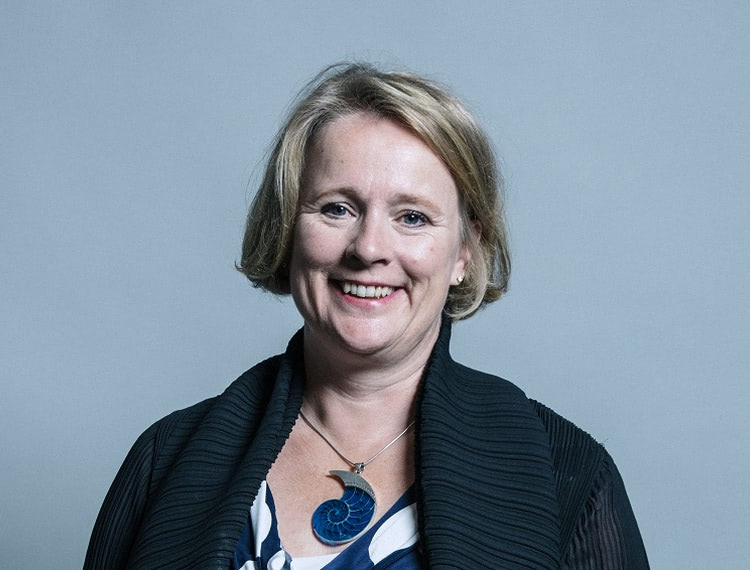Helping to bridge the gap between education and employment for young people with SEND

@VickyFord delivers keynote address on assistive technology
Speaking at the All Party Parliamentary Group (APPG) on Assistive Technology today [Tuesday 24 November], Children and Families Minister Vicky Ford announced new research has been published, aimed at helping to bridge the gap between education and employment for young people with SEND.
Pupils with special educational needs and disabilities (SEND) are benefitting from life changing assistive technology during the pandemic, helping to improve their communication, learning and overall independence.
The rapid assessment review brings together a body of research on assistive technology for the first time, helping schools and colleges better understand how to harness the benefits of existing tools and approaches to raise the outcomes of pupils with SEND.
She praised schools, colleges and the technology sector for their response to the ‘historic challenges’ during the Covid-19 pandemic, especially for vulnerable students with the most complex needs, but urged companies to make sure all their products and practices are fully inclusive.
Delivering the keynote speech at the APPG, Minister Ford said:
“Assistive technology can be life-changing and for many it is vital to communication, learning and overall independence.
“In recent months, the importance of Assistive Technology has been demonstrated like never before. The essential collaboration provided by groups such as this APPG is vital to ensure that we make policy which is informed by as much research and evidence as possible.
“Our review will give schools and colleges a helping hand by providing greater transparency in what tools and interventions can improve outcomes of SEND students and bridge the gap from education into employment. It will also support the technology sector in embedding accessibility features – such as text to voice tools – as part of their service development, and policymakers to better embed inclusion into their policies and services. This will lead to real, meaningful differences in the quality of education for children and young people.
“This is key, because we need to be clear: accessibility should never be an add on, it should be the norm.”
It follows Minister Ford’s letter to Google and Microsoft, sent jointly with Minister of State for Digital and Culture Caroline Dinenage earlier this month, calling on them to improve the accessibility of their products by including subtitles as a default setting, aiding teachers delivering education remotely, and by ensuring their comment functions are easy to read and adaptable for those with visual impairments.
She issued a warning to the sector that too often the effective use of technology in education is ‘hindered by poor broadband and connectivity’ or staff capability, or lack of understanding from parents.
The impact of the pandemic has highlighted the digital divide that exists between disadvantaged pupils and their peers, which the Government has tackled with a significant package of support worth £195 million for remote learning and online social care, including:
- Providing more than 220,000 laptops and tablets and 50,000 4G routers to disadvantaged and vulnerable children during the summer term;
- Making an additional 340,000 devices available to schools this term to help support these children where face-to-face education has been disrupted – with well over 100,000 of these devices delivered since September;
- Working with mobile network providers to provide free data top-ups to disadvantaged students and their families;
- Investing £37 million in Family Fund to help low-income families requiring specialist assistive technology for their children, of which £10 million is to provide home learning support fund for children with SEND, launched earlier this year;
- Providing funding for Oak National Academy to provide video lessons for Reception up to Year 11, creating over 200 hours’ worth of lessons and resources each week including subtitled and signed videos and a specialist curriculum for pupils with SEND; and
- Expanding our Demonstrator Programme – a peer support network supporting schools and college to improve their use of technology, including how it can remote education strategies.
Earlier this month (Wednesday 4 November) Minister Ford met with staff and pupils at one of the Department for Education’s Demonstrator colleges, National Star College in Gloucestershire, during a ‘virtual visit’.
Speaking at the APPG about the visit, Minister Ford said:
“I saw first-hand how technology can support those with even the most complex needs in the simplest of ways, including text-to-speech functions, how Google and Microsoft platforms can support an accessible curriculum and – crucially – how we can better support parents through the power of technology.
“Throughout this meeting the dedication and passion from staff shone through – how well they understand the needs of their students and strive to support them to achieve their potential.”
Neil Beck, lead assistive technologist at National Star College, said:
“We were delighted to receive the Minister Vicky Ford and appreciated her enthusiasm for the work that National Star are delivering as part of the Ed Tech Demonstrator programme.
“We are encouraged by the recognition of the importance assistive technology has in enabling learners with additional learning needs and disabilities to learn and compete with equity.
“This acknowledgement and recognition highlights the further need to provide teachers with the skills and knowledge, though the Demonstrator programme, to be able to confidently use assistive technology to support an increasing learner diversity in education today.”











Responses